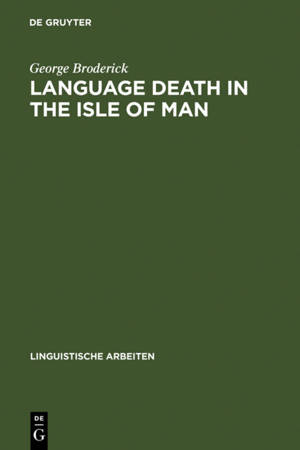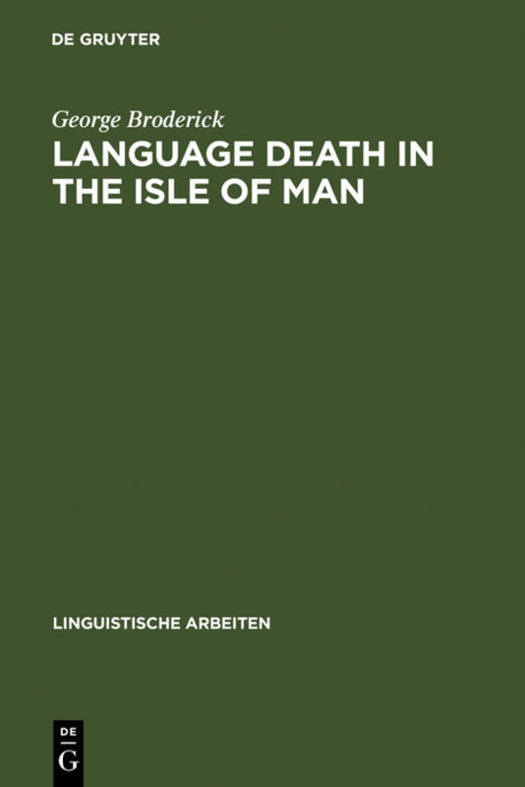
- Afhalen na 1 uur in een winkel met voorraad
- Gratis thuislevering in België vanaf € 30
- Ruim aanbod met 7 miljoen producten
- Afhalen na 1 uur in een winkel met voorraad
- Gratis thuislevering in België vanaf € 30
- Ruim aanbod met 7 miljoen producten
Language Death in the Isle of Man
An investigation into the decline and extinction of Manx Gaelic as a community language in the Isle of Man
George BroderickOmschrijving
Language death is an aspect of language contact which has occupied the interest of linguists from the past twenty-five years or so. Although the phenomenon of language death is occuring all over the world very few instances of it have been dealt with both from a sociolinguistic and formal linguistic standpoint. Those that spring to mind are the works of Nancy Dorian on East Sutherland Gaelic and Hans-Jürgen Sasse on the Albanian dialect of Arvanítika in Greece. In both instances it is dialects of languages that are treated and not complete languages themselves. The study of language death in the Isle of Man deals with the decline and extinction of Manx Gaelic as a community language, and as a language in its own right.
After setting the scenario of language death this study then looks into the sociolinguistic reasons which led to the decline and death of Manx in Man. There then follows a detailed look into the study of language and language use in Man, from early observations to the present day. This section includes a detailed description of phonetic and sound recordings made of Manx over the period. This leads to an in-depth study into the formal linguistic situation of Manx, tracing the development in its phonology, morphophonology, morphology, morphosyntax and syntax, idiom and lexicon, which ultimately led to its demise. As language revival is in itself a facet of language death, the study concludes with a short excursus into the various efforts at language revival and maintenance in Man, from the latter part of the 19th century to the present day. The appendices include Professor Carl Marstrander's diary of his visits to Man (1929-33) published for the first time. The diary contains percipient observations of the state of Manx in its final phase. In short, this study looks in some detail into the mechanics of language death on a once thriving and vibrant community language.
Specificaties
Betrokkenen
- Auteur(s):
- Uitgeverij:
Inhoud
- Aantal bladzijden:
- 313
- Taal:
- Engels
- Reeks:
- Reeksnummer:
- nr. 395
Eigenschappen
- Productcode (EAN):
- 9783484303959
- Verschijningsdatum:
- 29/03/1999
- Uitvoering:
- Hardcover
- Formaat:
- Genaaid
- Afmetingen:
- 156 mm x 234 mm
- Gewicht:
- 616 g

Alleen bij Standaard Boekhandel
Beoordelingen
We publiceren alleen reviews die voldoen aan de voorwaarden voor reviews. Bekijk onze voorwaarden voor reviews.











